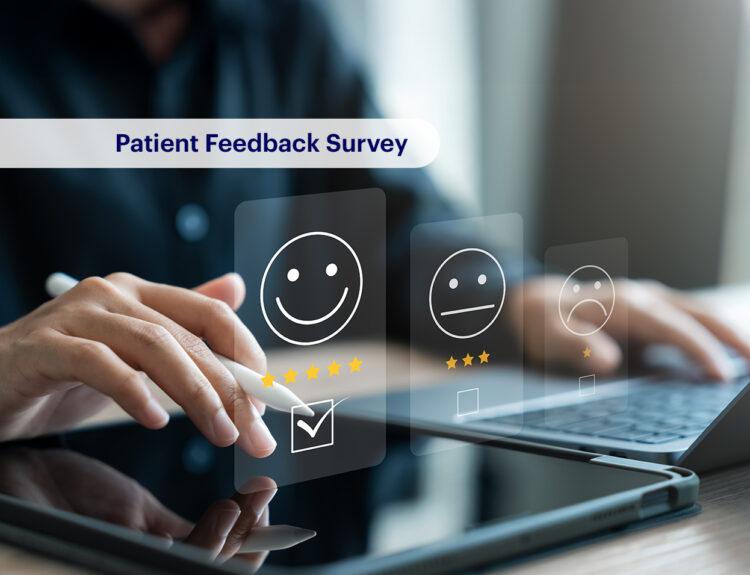In the quiet corridors of an unassuming clinic, something intriguing was happening behind closed doors. Patients whispered in hushed tones about a unique opportunity that had spread like wildfire. It wasn’t about a new experimental treatment or a groundbreaking procedure – it was about the power of their voices.
Word had gotten out that these patients had a chance to do more than just manage their conditions; they could actively shape the future of medical care. The secret to this newfound empowerment? Patient satisfaction survey questions.
Imagine being handed the key to the realm of medical research, a chance to influence the medicines of tomorrow by simply sharing your experiences today. It was as if a bridge had formed between patients and the very scientists striving to understand their journeys. This wasn’t just another survey – it was an invitation to become a part of something bigger.
Behind each survey was a story, an opportunity to paint a vivid picture of what life with a certain condition truly meant. With every question answered, patients were helping researchers uncover hidden patterns, validating treatment successes or failures and highlighting the unspoken challenges that medical professionals might never have considered.
And let’s not forget the cherry on top – compensation. It was as if their time, their insights and their candid thoughts were finally being acknowledged with more than just a nod. With each completed survey, a sense of satisfaction and the promise of a little extra income found its way into their lives.
The clinic became a hub of whispers and shared stories. Patients from various walks of life gathered in waiting rooms, excitedly comparing notes about the latest surveys they had taken. It was a community of individuals who had once felt isolated by their conditions but now found strength in their collective voice.
As news spread, these surveys started to become more than just data points; they became rallying cries, inspiring others to step forward and share their unique perspectives. After all, who wouldn’t want to play a part in a narrative where their experiences held the power to shape the future of medical care?
So, if you find yourself in the waiting room, gazing at the clinic’s bulletin board or hearing snippets of hushed conversations, know that there’s a doorway to a world of possibilities. A chance not just to be a patient, but to be a pioneer – someone who leaves an indelible mark on the path of medical progress.
The power of patient satisfaction survey questions breathed new life into the clinic, transforming it from a space of treatment into a realm of discovery, a place where every patient’s story became a crucial thread in the tapestry of healing.
What are patient surveys?
A patient survey is a tool used by healthcare organizations, medical facilities and healthcare providers to gather feedback from patients about their experiences with the healthcare services they have received. These surveys are designed to assess various aspects of patient care, communication, facilities and overall satisfaction. The information collected from these surveys helps healthcare providers and organizations identify areas for improvement and make necessary changes to enhance patient experiences.
Key components of a survey often include questions related to:
- Quality of care: This includes questions about the medical treatment received, the effectiveness of the treatment and the knowledge and competence of the healthcare providers.
- Communication: Patients are asked about the clarity of communication with healthcare staff, the ability of staff to listen to their concerns and the explanation of treatment plans and procedures.
- Waiting times: Questions about waiting times in waiting rooms, exam rooms and for appointments are common. This helps assess patient perceptions of efficiency.
- Staff attitude: Patients are asked about the friendliness, professionalism and empathy of the healthcare staff they interacted with.
- Facility and environment: This category assesses the cleanliness, comfort and overall environment of the healthcare facility.
- Access to information: Patients are asked about their access to medical information, test results and their ability to ask questions about their care.
- Overall satisfaction: A general question about overall satisfaction with the healthcare experience is usually included.
- Likelihood to recommend: This question gauges whether patients would recommend the facility or provider to others.
Patient satisfaction survey can be administered through various means, including paper-based surveys, online surveys, phone calls or in-person interviews. The collected data is then analyzed to identify trends and areas of improvement.
Customer satisfaction survey question examples
- How satisfied are you with the medical treatment you received during your visit?
- Did the healthcare provider explain your diagnosis and treatment plan clearly?
- How well did the healthcare staff listen to your concerns and needs?
- Were you informed about the potential risks and benefits of your treatment options?
- Did the healthcare provider involve you in decisions about your care?
- Did you feel comfortable discussing your medical history and symptoms with the healthcare team?
- How would you rate the waiting time in the waiting room before your appointment?
- Were you kept informed about any delays during your visit?
- Did the healthcare staff treat you with respect and professionalism?
- How would you rate the cleanliness and comfort of the facility?
- Were you provided with clear information about your treatment options and medications?
- How satisfied are you with the ease of accessing your medical records and information?
- On a scale of 1 to 10, how satisfied are you with your overall experience at our healthcare facility?
- How likely are you to recommend our healthcare facility to your friends and family?
The provided customer satisfaction survey question samples encompass a diverse array of subjects that are frequently explored within surveys. Exploring these patient satisfaction survey examples can offer patients a preview of the types of questions they might encounter during their feedback journey.

Patient satisfaction surveys offer several benefits to patients
Here are some of the advantages that patients can enjoy:
- Contribution to medical research: By participating in medical surveys, patients contribute to the advancement of medical knowledge. Their insights and experiences can help researchers better understand various conditions, treatments and patient perspectives, leading to improved healthcare outcomes.
- Voice amplification: Surveys provide patients with a platform to share their thoughts, challenges and opinions directly with healthcare providers, pharmaceutical companies and researchers. This gives patients a voice in shaping future treatments and healthcare services.
- Empowerment: Being part of the research process empowers patients to actively engage with their own health journey. It helps them feel like partners in their care rather than passive recipients of treatment.
- Influence on healthcare policies: Survey responses can influence healthcare policies, treatment guidelines and even regulatory decisions. Patient input can lead to changes that benefit a wider population.
- Connection with community: Participating in surveys can introduce patients to a larger community of individuals dealing with similar health conditions. This sense of connection can alleviate feelings of isolation and provide emotional support.
- Access to information: Surveys might include educational content about various medical aspects. Patients can gain insights into their conditions, treatment options and general health knowledge.
- Financial compensation: While not the primary motivator, the financial compensation for participating in surveys can be helpful. It can cover expenses related to healthcare, prescriptions or other medical needs.
- Early access: Some surveys offer patients early access to information about upcoming treatments, medications or medical devices. This allows patients to stay informed about the latest developments.
- Personal reflection: Surveys often prompt patients to reflect on their health, symptoms and experiences. This introspection can lead to a deeper understanding of their condition and how it affects their daily lives.
- Improvement of healthcare services: Patient feedback gathered through surveys can lead to enhancements in the quality of healthcare services, making them more patient-centered and responsive to individual needs.
- Data privacy and anonymity: Reputable survey providers ensure patient privacy and data anonymity. Patients can freely share their experiences without compromising their identities..
- Positive impact on mental health: Engaging in surveys and contributing to research can give patients a sense of purpose and accomplishment. This positive impact on mental health can complement their overall well-being.
- Educational opportunities: In some cases, patients may learn about clinical trials or research studies related to their condition. This could lead to further opportunities for involvement in cutting-edge medical research.
How does the healthcare industry benefit from patient surveys?
- Improved patient care: Insights gained from patient satisfaction survey questions can help healthcare providers better understand patient experiences, preferences and needs. This feedback on patient satisfaction in healthcare can lead to more personalized and patient-centered care.
- Enhanced treatment strategies: Survey data can provide valuable information about the effectiveness of different treatment approaches. Healthcare professionals can refine and tailor treatment strategies based on patient feedback.
- Informed decision-making: Survey results can guide healthcare institutions and policymakers in making informed decisions about resource allocation, facility improvements and healthcare policies.
- Product development and innovation: Pharmaceutical and medical device companies can use survey data to develop medications, treatments and devices that are better aligned with patient needs, potentially leading to more effective solutions.
- Clinical trial recruitment: Surveys can serve as a means to identify potential participants for clinical trials. This accelerates the recruitment process and ensures that trials are more representative of the target patient population.
- Identification of gaps in care: Patient feedback can highlight gaps in healthcare services or areas where patient needs are not adequately addressed. This information enables healthcare providers to fill those gaps and improve the overall quality of care.
- Evidence-based practices: Survey data can contribute to evidence-based practices in healthcare. Clinicians can use patient insights to make decisions backed by real-world experiences.
- Enhanced patient engagement: Encouraging patient participation in surveys fosters a sense of engagement and partnership between patients and healthcare providers. Patients who feel heard are more likely to actively manage their health.
- Streamlined communication: Surveys provide a structured way for patients to communicate their concerns and experiences. This helps streamline communication between patients and healthcare professionals.
- Healthcare marketing and communication: Healthcare organizations can use survey results to craft targeted marketing messages and communication strategies that resonate with patients.
- Quality improvement initiatives: Surveys can be a part of quality improvement programs within healthcare facilities. Feedback from patients can drive continuous improvement efforts.
- Research and evidence generation: Survey data contributes to the body of medical research, enriching scientific knowledge and informing future studies.
- Early detection of trends: Analyzing survey responses can help healthcare professionals detect emerging health trends or issues within specific patient populations.
- Patient satisfaction and loyalty: By actively seeking patient input, healthcare organizations can improve patient satisfaction and loyalty, leading to better retention rates and a positive reputation in the community.
- Ethical and patient-centric approach: Engaging patients in the research process demonstrates a commitment to patient-centered care and ethical research practices.
CONCLUSION:
In essence, participation in patient satisfaction survey creates a symbiotic relationship between patients and the healthcare industry. It helps healthcare professionals provide better care, develop innovative solutions and make informed decisions, all while ensuring that patients’ voices are heard and valued in the healthcare ecosystem. From inquiries about the quality of care and communication with healthcare providers to assessments of facility comfort and overall satisfaction, the examples of patient satisfaction questionnaires provide a glimpse into the diverse range of topics covered.
Engage now in customer satisfaction surveys: Answering one question can also make a difference.

MDForLives is a global healthcare intelligence platform where real-world perspectives are transformed into validated insights. We bring together diverse healthcare experiences to discover, share, and shape the future of healthcare through data-backed understanding.







